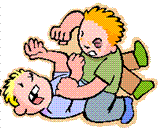
I'll be the first to admit that on my "off" days, I indulge in regular sessions of therapeutic cookie-baking, or eat far too many peanut M-n-M's and drink unnecessarily large servings of foo-foo coffee, thankfully affordable crutches er, "treats." Mrs. Stouffer or Ronald McDonald cooks dinner on those days while the Julia Child in me is down for the count. I ignore the phone, make sure the "No Solicitors, Please" sign is still firmly posted to my front door, draw the curtains, and climb into jammies early.
It's the plaid flannel set today folks.
*****
The thought struck me as colleagues and I discussed how young so many of our students seem to be this year, that so many classroom management difficulties would be solved by states and school districts implementing a no-loopholes policy regarding the minimum age of entry for students. Admittedly, I've had students who are academically ready for kindergarten as older four year olds or very young five year olds, but very few have been socially and behaviorally ready when their parents have chosen to push their enrollment.
It's week four of school, and we haven't gotten into a smooth rhythm or predictable routine because I'm still having to intervene and halt instruction due to less-mature students' lack of restraint, follow through, and social problem solving abilities. Granted, kindergarten is the perfect place to develop and fine tune those skills, but with students who start kindergarten at a more developmentally appropriate age, that tweaking and fine tuning is more manageable. Why? Because older students are better able to focus for longer periods of time, are more tuned in to the fact that they share their environment with people other than their family, and have had more practice (hopefully) solving problems with words, self management, and calmly seeking out the help of others.
Younger children, especially boys, resort to highly efficient communication styles when interacting with others: it's faster to push, yell, or grab toys away. Why "use your words" or "take turns" when punching a playmate sends the message loud and clear that you're the boss, you want that toy, and you want it now? With state standards, national assessments and the expected/required mastery of skills on the forefront, why are states and districts purposely setting themselves (and their students) up to fail by hurrying younger and younger children through the system, forcing developmentally inappropriate disciplinary practices and tones to be established and used, and creating resentment of teachers and schools by the very children (and their parents) into whom we are supposed to be inspiring a lifelong love of learning? If little Johnny or Jane has toileting problems, can't keep his/her hands off of other students, yells "I gotta PEE" at every inopportune moment, can't or won't transition between activities, actively interrupts the learning of others, sleeps through instruction, or demands an inordinate amount of the teacher's attention (successfully taking time away from a majority of the other students and lowering the teaching time that is supposed to be alloted to actual instruction of the curriculum), then guess what? Little Johnny or Jane isn't ready for kindergarten and shouldn't be there.
I know kindergarten is cheaper than day care. I know a child's social inexperience can get on a parent's or babysitter's last nerve. I know some states enjoy promoting the Keeping-Up-With-the-Joneses game amongst the middle and upper-middle classes. And I know that parents' egos, insecurities, fear for future opportunity, and even sincere desire to do what is "best" for their child can cause them to mistakenly push their children instead of holding them close and nurturing them for a bit longer. Parental guidance is effective and essential, and in my opinion shouldn't be so easily abdicated by mothers and fathers, eagerly supported by districts all-too-eager to help them cut the apron strings long before they should be severed.
Kindergarten will still be there next year. Your child will be better prepared to handle the mandated rigors of today's kindergarten curriculum and subsequent school expectations when s/he can wait for a turn, is willing to regulate voice volume, feels comfortable attempting new tasks without needing or wanting constant adult approval (teachers have to be shared, after all), and feels more inclined to behave safely and with a sympathetic/empathetic demeanor.
Simply put, it's not my job to teach your child to not throw tantrums when he doesn't get what he wants: that's your job. It's not my job to spend most of my day acting as a human shield between your child, who likes to throw scissors, and all of her seatmates who are trying to cut, color, and glue their "Ss" page. It's not okay for your child to yell and hoot every day during Brain Break while other students sleep for four weeks straight, and there is no appropriate consequence, bribe, or threat that I should have to use for a year to help your child "learn" how to be considerate of others: that's YOUR job.
Test-lovers and school-data-gurus, catch a clue and and do it quickly: not much essential growth and mastery can take place when a majority of the year is spent trying to reign in children from their natural dispositions, forcing their developmentally appropriate round bodies through the square holes better suited for older students. We don't let children drive until a certain age, we don't let them vote or drink until a certain age. What's so wrong with allowing them to BE exactly their age in the most appropriate location possible? Kindergarten isn't that place for four year olds, and like it or not, it's not that place for some five year olds either.


As 5 kindergarten teachers in the 3rd week of school, we have been having similar issues with students. I know it's not our job to do a lot of these things, but often if we don't do them and help a lot of these parents, who will? We teach in an urban Title I school, with parents who have had poor school experiences themselves and their other children, and often don't know how to parent--Not making excuses, but that's life here! We are also discussing what and how we are teaching. There has been such a push for academics, testing,etc. that we often forget they are only 5 and often still learn best through play. We have so much on our plates tgoday, that we don't take time to breath, let alone let them have a break. Just a little ranting and raviong--at least it is Thursday and a 3 day weekend! It will get better--I hope!
ReplyDeleteOMG!!! AMEN to that, Sista!! This is how I feel every single day. I've just never seen this side of you! ;-) You always seem so together and with it, and I got the impression that you never got rattled at school with your super stars. haha!! Glad to see you're just like the rest of us. Makes me feel a little better about my constant complaining.
ReplyDeleteYou use your blog to highlight the positives of teaching and share helpful teacher tips, whereas I use mine in lieu of therapy! tee hee!
I completely agree with kinders that start too early. In NY you can start Kindergarten in the fall if you turn 5 before Dec.1st. Last year I had 9 4-year olds in september and it was my toughest year yet. Granted, my youngest student was a very "ready-for-Kindergarten" girl BUT my boys were not ready for school. We start next week....wish me luck!
ReplyDeleteI have two "definitely not ready" students, but they are worlds apart. One has wild behavior issues and is a constant threat to himself and others. The other will work for me on any task and is determined to succeed. Both are boys. I try to monitor the first one and work with the second one as much as possible.
ReplyDeleteI understand exactly what you are talking about. I spent my entire year (2009-2010) trying to "tame" the behavior issues in my classroom. It was the most immature class I have ever had the "pleasure" of teaching or should I say attempting to teach.
ReplyDeleteWe are in our 7th week of school and are in the middle of our parent teacher conferences and struggling with the issue of what to tell parents when they ask, "So how's his/her behavior?" My teaching partner and i are both seasoned teachers and have gone the route of sugar coating the issues and saying "Oh, just fine. We are still at the beginning of the year things will work themselves out." We are down to a more realistic tell it like it is approach. We are surprised to hear parents tell us about the challenges they are having at home also and asking us what they should do. We are not in the counseling business and there are no parenting classes in our area for at least 65 miles so we do our best to offer a few suggestions and move on to telling the parents where their child is on academics. I agree, with the perspective on how curriculum has changed over the past 10 years. We have no time to "play" and socialization is learned on the playground and in the lunchroom which is more like the survival of the fittest than it is a nurturing environment. It's sad when you hear your friends ask in September, "How many day until we get a break?"
ReplyDelete